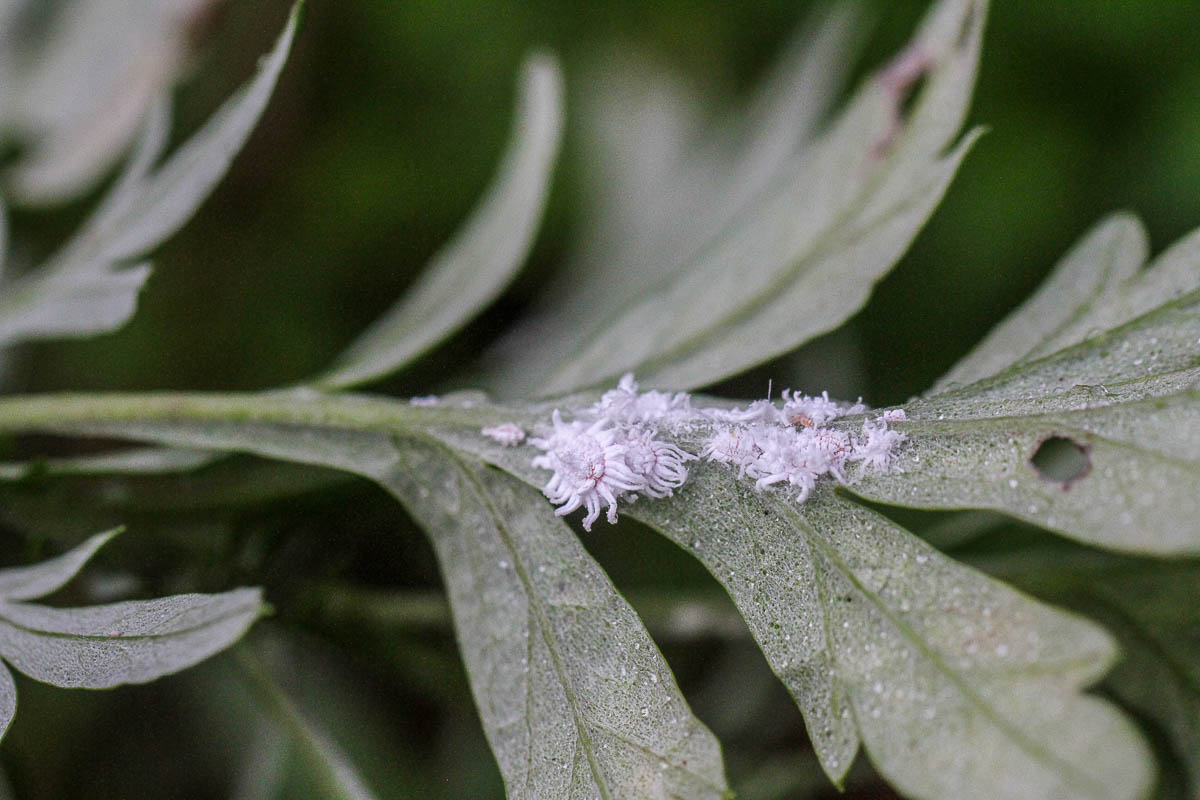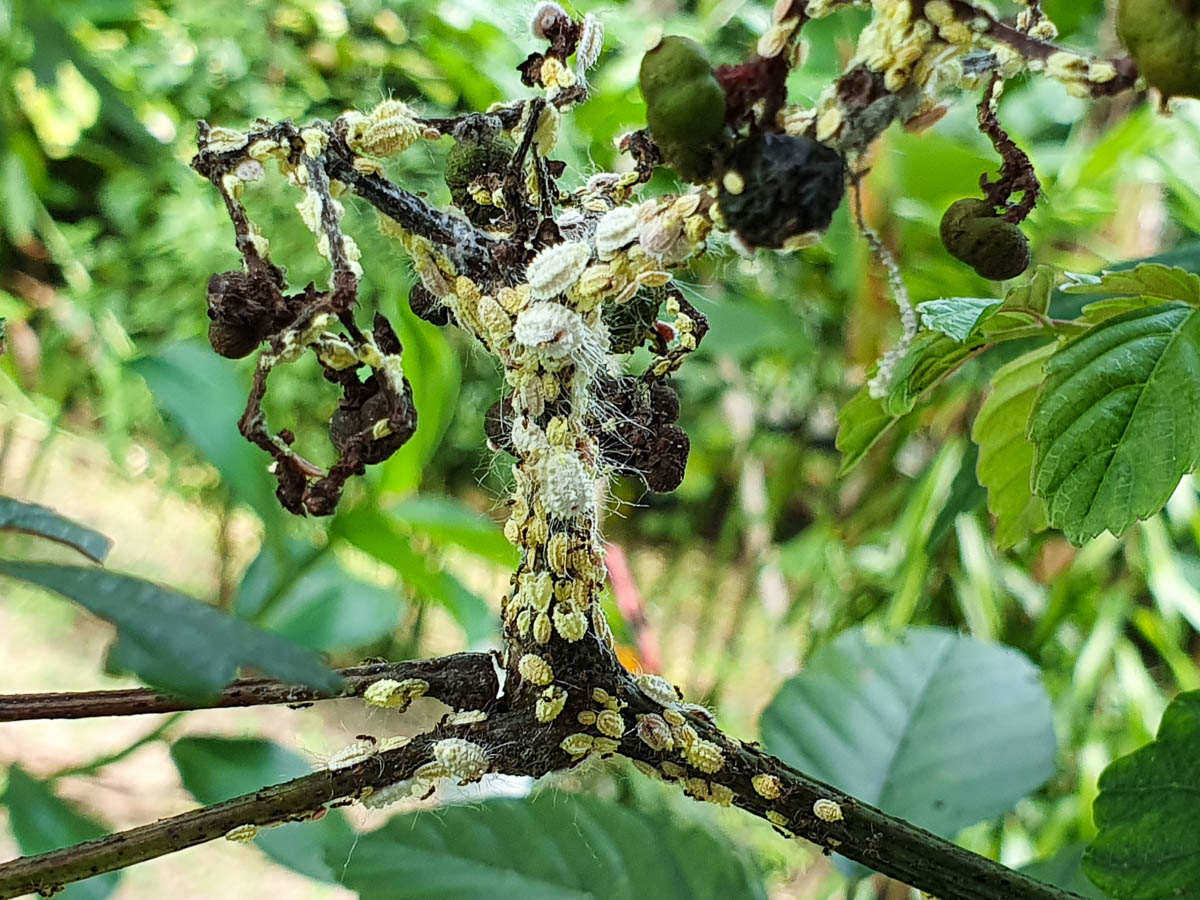Mealy Bugs
Mealy Bugs (Pseudococcidae)

Mealy Bugs are small, white soft-bodied insects with a cotton-like covering. The cotton-like covering is waxy and generally chemical-proof, making mealy bugs hard to treat with chemicals or organic pesticides. They are sap-sucking insects that can feed on feed on a variety of plants, and are most often found on stems, on the underside of leaves, and on roots.

Mealy bugs tend to deposit yellow eggs within a white, cottony, thread-like mass. The young mealy bugs tend to hide themselves in stems crotches, leaf folds and other locations on the plant where water or pesticides cannot reach. This makes infestations hard to remove, making mealy bugs a common reoccurrence in a garden once they establish.
_jacquelinechua.jpg)
Like Aphids, Mealy Bugs produce honeydew, a sweet waste fluid, which attracts ants. As a result, ants may guard and care for groups of mealy bugs. Large clusters of ants can thus be indicative of a mealy bug infestation! Honeydew on plants also encourages the growth of sooty mold, which you are more likely to see before you spot Mealy Bugs on your plants.
As with most pests, mealy bugs generally attack plants that are already unhealthy. Check your plant for additional problems such as root rot from waterlogging, etoilation, or overcrowding. Cultural control methods should be implemented to prevent your plants from becoming unhealthy in the first place.
Symptoms
_jacquelinechua.jpg)
Cotton-like material may be present on affected parts of the plant.
Leaves, stems, and fruits appear sticky, and can become covered in sooty mould.
Ants are seen crawling around leaves and stems in large numbers.
Preventive and control measures:
Always isolate and inspect newly bought plants for pests before introducing them to your plant collection.
Isolate affected plants immediately if pests are found.
Heavily infested plant parts should be pruned as soon as possible. Severe infestations may need the entire plant to be removed. Bag up the infested plant or plant parts securely for proper disposal to prevent further spread. Do not use the removed plant waste for composting or for consumption.
Chrysanthemum spray, horticultural oils and sulphur soap sprays can kill soft-bodied pests on contact. Use chemical controls like these sparingly as they tend to also affect other types of biodiversity.
Encourage predators to establish in your garden by keeping it pesticide-free. Ladybirds feed on Mealy Bugs and can keep their population under control.
Expose infested soil to direct sunlight for at least two weeks to kill off remaining mealy bugs or replace the soil entirely.

